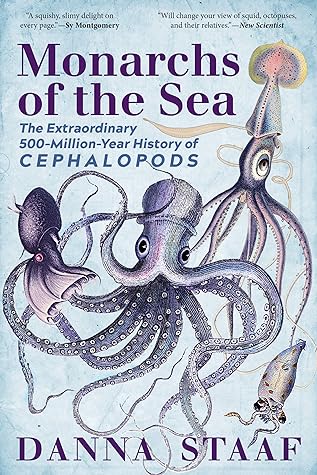The critical component of high-quality octopus fossils seems to be phosphate, a chemical that occurs naturally in seawater, and in living tissue as a building block of DNA and of energy-carrying molecules. When conditions are right, the soft tissues of a dead animal can be quickly replaced with the mineral calcium phosphate. Such phosphatic fossilization sometimes preserves detail down to the level of single cells.
Welcome back. Just a moment while we sign you in to your Goodreads account.


